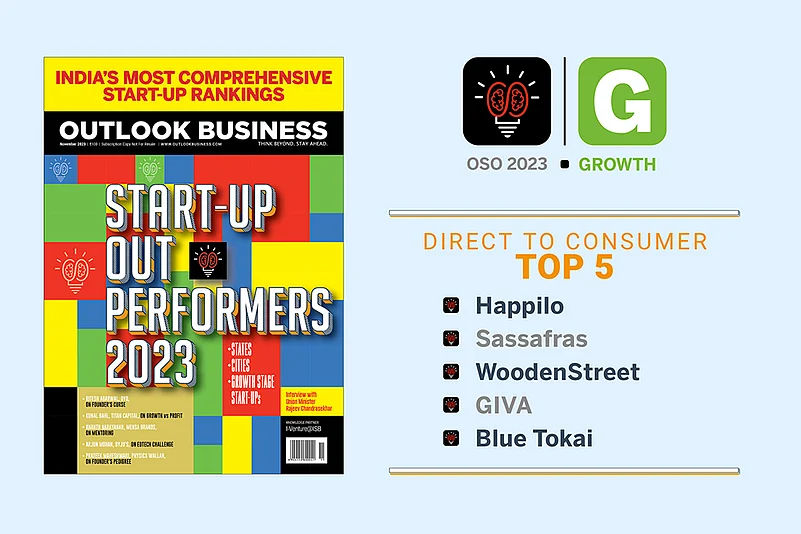01 Happilo
Healthy Snacking Creates a Market Success Story
Drawing from his observations of market trends in the food segment, Vikas D. Nahar, an experienced FMCG professional, launched Happilo in 2016 to cater to health-conscious customers. The company has made a name for itself in the market for selling dry fruits, nuts and berries.
The brand has over 200 distribution partners. Its products are available at airports, Amazon, Flipkart and A-category general stores.
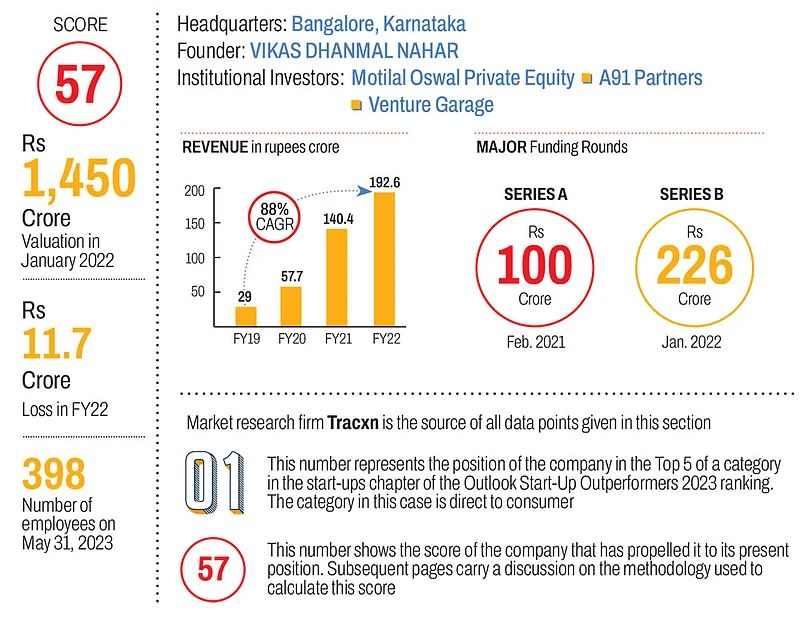
The start-up saw significant growth in its revenue over the past few years. In FY20, its revenue stood at Rs 57.7 crore, which increased to over Rs 192 crore in FY22. From serving just 100 to 200 customers monthly, it claims to have expanded its reach to over one million families every month in 2023. Nahar says that the goal of the start-up is to push India to have healthy snacks.
The key to success, Nahar said earlier, is the trust of customers. He aims to make Happilo a Rs 1,000 crore brand in the coming years.
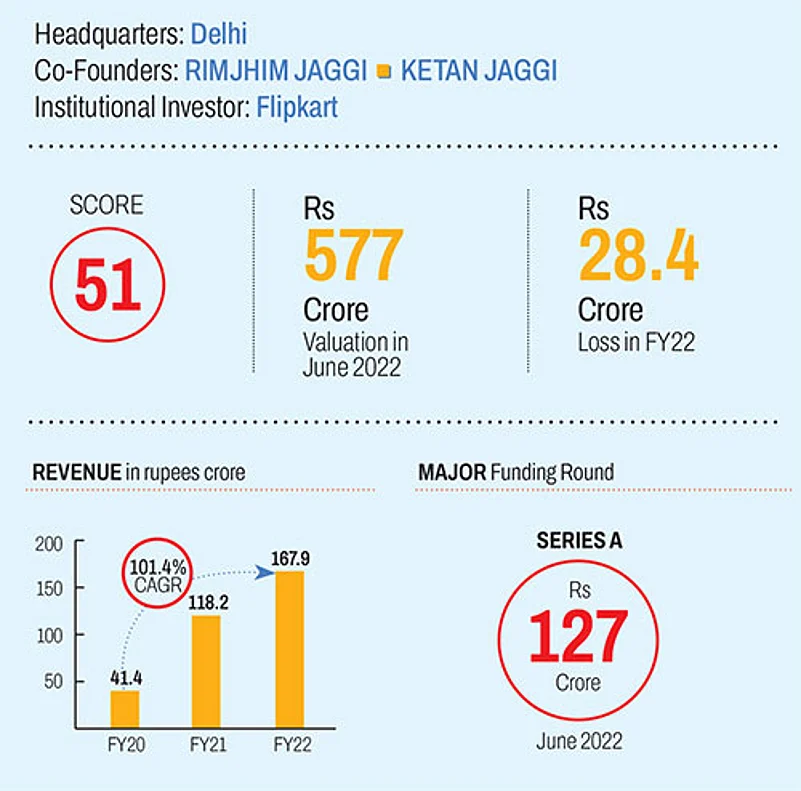
02 Sassafras
How a New Brand Created Loyal Audience with Quickly Changing Fashion Trends
Inspired by a tree of the same name, Sassafras by Ketan and Rimjhim Jaggi aims to create affordable fashion and targets the “free-spirited youth” of the 21st century, with a special focus on women’s fashion.
The brand introduces new trends that have a short cycle of 45–60 days, right from design to introduction into the market. With help from fashion ecommerce brand Myntra, it scaled volume and business quickly to reach a larger audience. The internet-first brand has seen tremendous growth since the pandemic. Its revenue grew from over Rs 41 crore in FY20 to about Rs 168 crore in FY22. In these high-growth years, it introduced sub-brands, like ethnic fusion brand Shae, teen wear brand Noh.Voh and menswear brand MASCLN.
The brand aims to have its presence across all platforms, including online, offline, social commerce and social media.
03 Woodenstreet
Luxury, Ethnic Furniture Becomes Affordable and Brings in Profits
The rich artisan base of Rajasthan inspired Lokendra Singh Ranawat, Virendra Singh Ranawat, Vikas Baheti and Dinesh Pratap Singh in 2015 to launch WoodenStreet, an online furniture start-up. As per the company’s statement, the idea behind the start-up was to promote handicraft and utilise the skills of artisans to build high-quality furniture.
The company had a dedicated team to understand the needs of customers in different regions and launched products to cater to their requirements, CEO Lokendra Singh Ranawat explains. Having its own manufacturing units meant it could provide the option of customisation to its users. It claims to have one of the largest furniture manufacturing and R&D units. As per the company’s website, it has over 30,000 furniture and furnishing products.
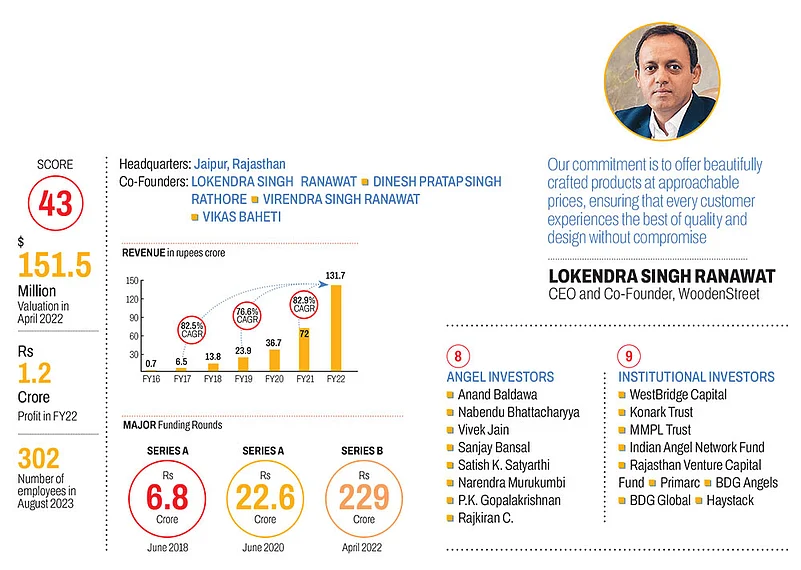
According to data from research platform Tracxn, the company’s revenue grew from Rs 0.7 crore in FY16 to Rs 131.7 crore in FY22. It is now eyeing expansion, from around 95 to 300 experience stores in the next three years. Recently, it launched an inhouse brand named Earthly Threads, that offers nature-inspired home décor.
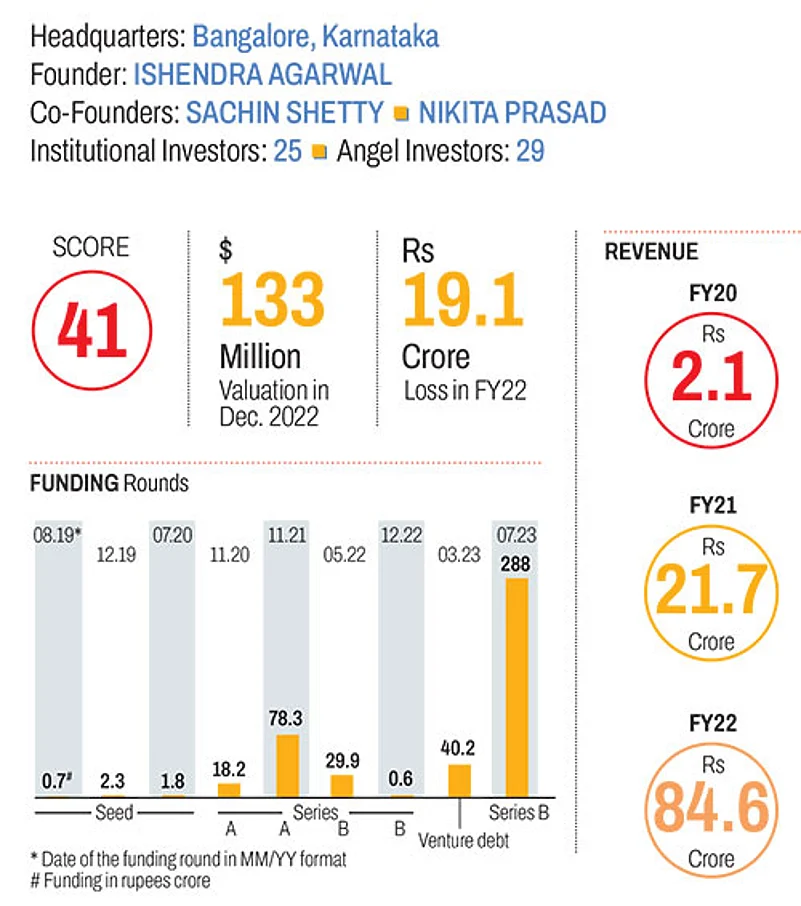
04 Giva
Adding Jewellery to Everyday Attire
Ishendra Agarwal, Nikita Prasad and Sachin Shetty established GIVA in 2019 to offer affordable silver jewellery for daily wear.
Within four years, it has made a space for itself by creating affordable and minimalist designs, with many of its products priced below Rs 30,000. It recently added gold to its catalogue.
During Covid-19, people shopping for jewellery became cost-conscious, Agarwal points out. This helped the brand, which catered to customers looking for stylish modern designs in the low-priced segment.
GIVA is backed by investors like Aditya Birla Group, Sixth Sense Ventures, A91 Partners, etc. It has over 40 stores in more than seven cities in India.
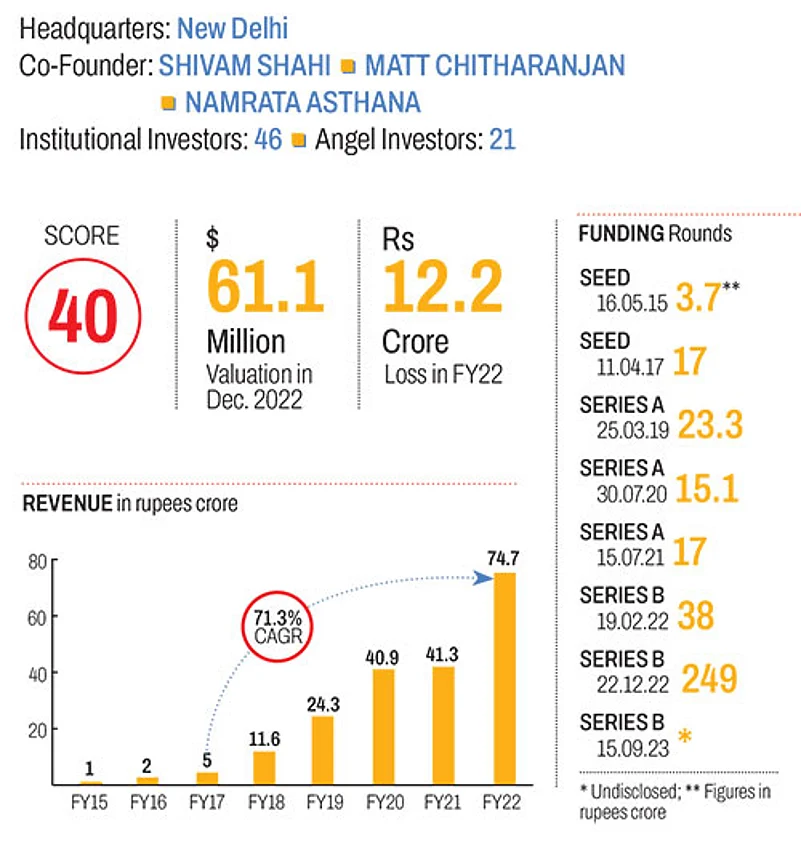
05 Blue Tokai
Carrying Coffee Beans to the Land of Tea
In a country popularly known for its obsession with tea, the coffee market is expected to grow at a CAGR of 4.3% during 2023-2029 period, according to a Stellar Market Research report. Recognising the market potential years ago, Matt Chitharanjan, along with Namrata Asthana and Shivam Shahi, founded Gurgaon-based Blue Tokai Coffee Roasters in 2013 with the goal of providing high quality coffee. The company has roasted more than 1.2 million kilogrammes of coffee and served over five million cups till September 5, 2023. Last year, the firm also forayed into Japan.
To expand its presence in the country, the company is planning to increase the store count from 80 to 125 by the end of FY24.







